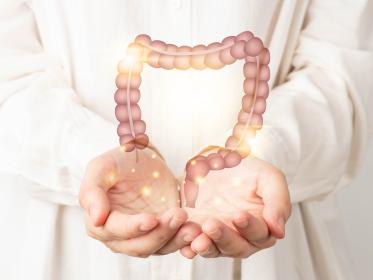What is Colectomy?
Colectomy is a surgical procedure to remove all or part of the colon or the large intestine. In a partial colectomy, the surgeon removes only part of the colon. The bowel is then reconnected or an opening of the bowel (ostomy) is created on the abdominal wall to allow the contents of the bowel to exit from the body. Colectomy may be needed for treatment of colon cancer.
Diet After Colectomy
After having a portion of your colon removed, bowel problems can occur. The most common problems are diarrhea, constipation, excess gas production, and dehydration. These symptoms occur because the normal functions of the colon, such as absorbing fluid, have not yet returned to normal. These problems can be helped with careful attention to diet and to liquid intake. Be patient and progress slowly. Smaller meals produce less gas. It is best to eat meals at regular intervals, at least 3 times per day.
The following foods are easy to digest and may decrease the amount and frequency of diarrhea:
- applesauce
- peanut butter
- bananas
- potatoes
- boiled white rice
- pretzels
- bread or toast
- sugar-free cereals (Cheerios, Total, Corn Flakes)
- cheese
- cream of rice
- tapioca
- cream of wheat
- weak teas
- fiber supplements (fiber wafer is best to bulk stools)
- yogurt
- marshmallows
- pasta
The following foods can cause loose stools or diarrhea:
- baked beans
- hot beverages or soups
- beer
- licorice
- broccoli
- cauliflower
- Brussels sprouts
- Kale
- cabbage
- prune juice
- chocolate
- red wine
- dried beans
- spinach
- no more than 2 cups of coffee/day
- very large meals
- heavily spiced foods
The following foods can produce excessive gas:
- apples
- citrus fruits
- apricots
- Eggplant
- bagels
- doughnuts
- lettuce
- wheat germ
- milk and milk products
- dried beans
- onions
- celery
- pastries
- Brussels sprouts
- cabbage
- carrots
- prune juice
Dehydration
The first sign of dehydration is feeling thirsty followed by symptoms of tiredness, weakness and feeling faint. The most important sign is the concentration of the urine and the frequency of urination. You should urinate at least 4 times a day and the color should be clear to light yellow. Urinating less than 4 times a day or dark yellow or orange colored urine is a sign of dehydration. Dehydration after a colectomy is most often caused by frequent loose stools or diarrhea.
How to Re-Hydrate
Replenish yourself by drinking non-alcoholic, caffeine-free beverages. The best rehydrating liquid is water. Other options are Gatorade, diluted orange juice, weak decaffeinated teas, bouillon cube in hot water.
Constipation
After a Colectomy, constipation can occur after periods of diarrhea and can be quite painful. The first step is to increase water consumption followed by increasing your daily exercise. Regular daily exercise significantly helps regulate normal bowel function. Next, slowly add in fiber supplement to your diet. Natural options include bran, whole grain cereals, fresh fruit, vegetables, and whole wheat bread. Alternatively, fiber wafers are available over the counter and can be taken daily or twice daily as needed.
Diarrhea
After a Colectomy, the ability of the colon to absorb water is diminished for a period of time. Eventually, your remaining colon will learn to absorb the water you need. During this initial period of time, several strategies are needed to avoid dehydration.
First, drink plenty of water and pay attention to the number of times you are urinating each day. Focus on foods that will help slow your bowel movements (see food list) and avoid foods that will worsen diarrhea. Slowly add in a fiber supplement. A fiber wafer can help bulk up the stool so that they are not so loose.
If bowel movements exceed four times a day, then over the counter Loperamide can be carefully added to slow the bowels down. Begin with one tablet in the morning and one in the evening. Avoid constipation as the resulting symptoms can be quite painful. Tolerate 2 – 3 bowels movements a day even if loose until your colon becomes more regulated. It may take 3 – 4 months before your bowel habits normalize.
Sources
- Morrison Healthcare Manual of Clinical Nutrition Management, 2014
- www.nlm.nih.gov/medlineplus/ency/patientinstructions/000153.htm, accessed April 8, 2014.
Devised: April 2014
